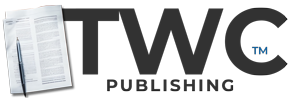The Landscape of Personal Taxation and its Ethical Implications
No Fee – $9.99
| Case ID: | A-TAX-20230816-1-V1 |
|---|---|
| License: | CC BY-NC-SA 4.0 |
| Pages | 4 pgs |
| Case Study Analysis | Not Included |
| Teaching Notes | Available |
| Ai Level | Content co-authored with the OpenAI API |
| Category(s) | Accounting – Rating: 9/10 |
The case study delves into the complexities of personal taxation through the lens of MapleLeaf Financials, a reputed accounting firm in Toronto. As Senior Tax Consultant Marcus Wellington prepares the tax return for his client, Claire Rutherford, a renowned author, he stumbles upon discrepancies in her reported income. Faced with the moral dilemma of reporting Claire’s undisclosed offshore account or preserving the firm’s discretion, the case illuminates the intersections of finance, ethics, and strategy. By presenting the challenges both Marcus and Claire navigate, the narrative underscores the importance of integrity in the financial realm and the broader societal implications of tax evasion.
Case Disciplines Rating:
- Accounting - Rating: 9/10
- The case revolves around personal taxation, a subject deeply rooted in accounting. It's centered on an accounting firm and highlights the roles and responsibilities of an accountant.
- Ethics - Rating: 8/10
- The core dilemma in the case is an ethical one, concerning tax evasion and the moral responsibilities of both the client and the tax consultant.
- Finance - Rating: 7/10
- Personal taxation, tax evasion, and the related financial implications make this case relevant for a finance course, especially one focusing on personal finance.
- General Management - Rating: 6/10
- The case presents a situation where decisions could impact the reputation of a firm, thereby demanding strong managerial skills and considerations.
- Strategy - Rating: 6/10
- The resolution of the dilemma requires strategic thinking, taking into account legal, ethical, and business implications. The manner in which Marcus deals with the client's tax evasion scenario demonstrates strategic thought.
Weaknesses of this Case Structure:
- Length and Depth:
- The case study, while detailed, is somewhat brief. Expanding on the backdrop, history, and the implications could provide a richer context and help readers better understand the nuances of the situation.
- Scenario Complexity:
- The dilemma, while ethically challenging, is straightforward. Introducing more intricacies like previous history of such incidents, or the role of other stakeholders, might have enriched the case's complexity.
- Data Analysis:
- The financial overview is simple, and there's no deep analysis of the financial implications, such as the long-term impact on Claire's finances or the broader industry effects of such tax evasions.
- Storytelling:
- The case could benefit from a more engaging narrative. Delving deeper into the personal backgrounds, motivations, and emotions of Marcus and Claire could make the case more relatable and gripping.
- Realism:
- While the case is intended to be hypothetical, it might benefit from more realistic elements, such as industry trends or the implications of such practices on the broader Canadian economy.
Strengths of this Case:
- Relevance:
- Tax evasion and ethical dilemmas in personal taxation are timely topics, making the case immediately relevant for many readers and students.
- Clear Ethical Dilemma:
- The case presents a clear moral quandary, forcing readers to consider both the ethical and professional responsibilities of financial professionals.
- Practical Implications:
- The case provides practical implications by demonstrating potential consequences (legal, financial, reputational) of actions taken by both Marcus and Claire.
- Character Development:
- The characters of Marcus and Claire are well-defined, with Marcus representing the ethical professional and Claire portraying the tempted client. Their interactions give readers a clear understanding of the dilemma at hand.
- Holistic Approach:
- The case doesn't just focus on the technical aspects of accounting. By incorporating ethical, strategic, and managerial elements, it offers a holistic view of the issue, making it applicable across multiple disciplines.





